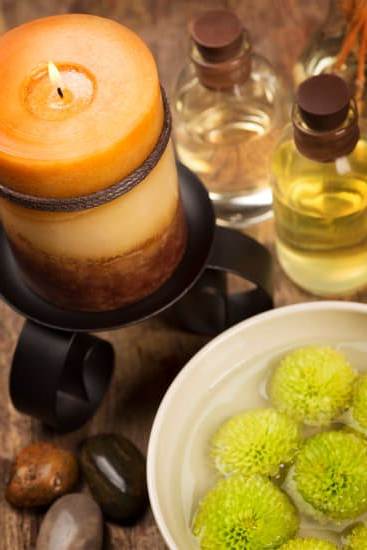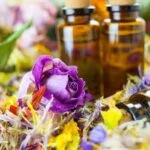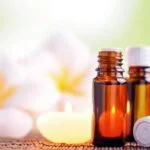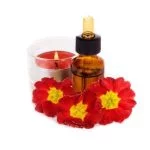When it comes to managing stress and finding moments of calm amidst the chaos of daily life, many people turn to various forms of therapy. One such therapy gaining popularity for its potential stress-reducing benefits is aromatherapy. But why is aromatherapy good for stress? In this article, we will delve into the science behind this ancient practice and explore how essential oils can help alleviate stress and promote relaxation.
Aromatherapy is a holistic healing practice that utilizes natural plant extracts, known as essential oils, to enhance physical, mental, and emotional well-being. Essential oils are derived from different parts of plants, including flowers, leaves, roots, and fruits, through a process called distillation. These concentrated oils are then used in various ways to stimulate the senses and trigger specific responses in the body.
The therapeutic effects of aromatherapy on stress relief originate from its ability to interact with the brain and nervous system. When essential oils are inhaled or absorbed through the skin, their chemical components stimulate certain receptors in our olfactory system and signal messages to our brain.
This interaction triggers emotional and physiological responses that can have a calming effect on our mind and body. By understanding the science behind aromatherapy’s impact on our neurological pathways, we can harness its potential benefits for stress reduction effectively.
By exploring the connection between aromatherapy and stress relief further, we can uncover an array of practical techniques for incorporating essential oils into our daily routines. From diffusers emitting fragrant mists throughout your home or office space to massage oils applied during self-care rituals or inhalation methods that offer instant relaxation-there are numerous delivery methods that suit individual preferences while aiding in stress management.
Additionally, research supports various psychological benefits of using essential oils such as enhanced relaxation, improved mood regulation along with promoting better sleep quality-their adaptability makes them versatile tools for self-care and stress relief.
Through exploring aromatherapy’s effectiveness and utilizing empirical evidence, this article aims to demonstrate the potential of this complementary therapeutic approach in managing stress and promoting overall wellness. With practical tips, safety precautions, and considerations provided, readers will find guidance on integrating aromatherapy into their daily routines and embracing self-care practices that nurture both their mental and emotional health.
Understanding the Science Behind Aromatherapy
Aromatherapy is more than just a pleasant scent; it has a scientific basis for its stress-relieving effects. Understanding the science behind aromatherapy can shed light on why it is such an effective tool for reducing stress.
The Sense of Smell and the Brain
To understand how aromatherapy works, it is important to grasp the connection between our sense of smell and the brain. Our olfactory system, responsible for detecting smells, is intricately linked to the limbic system, which plays a vital role in emotions, behavior, and memory. When we inhale essential oils, their molecules interact with sensory receptors in our nose and are then relayed to the limbic system.
Evidence of Aromatic Molecules’ Effects
Numerous studies have investigated the impact of aromatic molecules on brain activity and stress reduction. For example, lavender essential oil has been found to increase alpha waves in the brain, which are associated with relaxation and calmness. Additionally, studies have shown that certain compounds found in essential oils, such as linalool and limonene, have anti-anxiety effects by modulating neurotransmitters like GABA (gamma-aminobutyric acid).
Neurotransmitter Regulation
Essential oils have also been shown to affect neurotransmitter activity in ways that promote relaxation and reduce stress. Some oils can increase serotonin levels, known as the “feel-good” hormone that regulates mood and helps combat depression. Others can inhibit or reduce cortisol production – a stress hormone associated with anxiety – leading to a calming effect on both the mind and body.
Understanding these intricate processes helps explain why aromatherapy is good for stress relief. By harnessing the power of scent and its influence on the brain’s chemistry, essential oils have the potential to promote relaxation and alleviate stress in a natural way.
Popular Essential Oils for Stress Relief
Aromatherapy has gained popularity as a natural and holistic approach to managing stress. One of the key components of aromatherapy is the use of essential oils, which are highly concentrated extracts from plants that are believed to have therapeutic effects. Different essential oils have different properties and can address a wide range of stress-related issues. Here are some popular essential oils known for their calming properties and how they can help alleviate different types of stress.
- Lavender Oil: Lavender oil is perhaps one of the most well-known essential oils for stress relief. It has a pleasant floral scent that promotes relaxation and helps soothe anxiety. Studies have shown that lavender oil can reduce the levels of the stress hormone cortisol in the body, making it an effective option for managing both physical and psychological stress.
- Chamomile Oil: Chamomile oil is famous for its calming effects on the mind and body. It has a sweet, apple-like aroma that helps reduce feelings of irritability and promotes relaxation. This oil is particularly beneficial for individuals experiencing insomnia or trouble sleeping due to stress.
- Bergamot Oil: Bergamot oil is derived from the peel of bergamot oranges and has a refreshing citrus scent. It is known for its mood-enhancing properties and can help alleviate symptoms of anxiety and depression associated with chronic stress. Additionally, bergamot oil has been found to promote a sense of well-being, making it useful in reducing emotional tension.
These essential oils can be used individually or in combination to create personalized blends tailored to specific needs. They can be diffused using an aromatherapy diffuser, added to bathwater or massage oils, or applied directly onto pulse points for quick relief.
How Aromatherapy Works
Aromatherapy offers various delivery methods to effectively reduce stress and promote relaxation. The different techniques of aromatherapy involve the use of essential oils through diffusers, massage oils, and inhalation. Each delivery method has its own unique effects on stress reduction, providing individuals with a range of options to choose from based on their preferences and needs.
Diffusers
One popular way to experience aromatherapy is through the use of diffusers. These devices disperse essential oils into the air in the form of tiny droplets, allowing individuals to inhale the therapeutic aroma. Diffusers can come in different forms such as ultrasonic diffusers, heat diffusers, or evaporative diffusers.
Ultrasonic diffusers are particularly common as they utilize water to create a fine mist that carries the scent of the essential oil throughout the room. This method not only helps in reducing stress but also promotes a calming atmosphere within the environment.
Massage Oils
Another effective way to incorporate aromatherapy into stress management is through massage oils. By blending essential oils with carrier oils such as coconut oil or jojoba oil, a soothing massage can be performed with added benefits of aromatherapy. When applied to the skin during massage, these aromatic blends are absorbed into the bloodstream, allowing for both physical and psychological effects. The combination of touch therapy and aroma enhances relaxation and helps reduce tension in muscles, ultimately assisting in relieving stress.
Inhalation
Inhalation is one of the simplest and most direct ways to experience the benefits of aromatherapy for stress reduction. Inhalation involves breathing in essential oils directly from a bottle or by using methods such as steam inhalation or adding a few drops onto a tissue or cloth held near the nose.
The aromatic molecules emitted from the oils stimulate olfactory receptors in our nasal cavity, which then send signals directly to the limbic system in the brain, responsible for emotions and stress response. Inhalation can provide immediate relief from stress and anxiety, offering a quick and convenient method for aromatherapy.
The Psychological Impact of Aromatherapy
Aromatherapy is not only beneficial for reducing stress on a physiological level, but it also has a significant impact on the psychological well-being of individuals. The use of essential oils in aromatherapy can enhance relaxation, improve mood, and promote better sleep. This section will delve into the specific psychological benefits of using essential oils for stress relief.
Enhancing Relaxation
One of the main psychological benefits of aromatherapy is its ability to enhance relaxation. When inhaling certain essential oils, such as lavender or chamomile, the olfactory system transmits messages to the brain’s limbic system, which controls emotions and memory. This interaction elicits a sense of calmness and relaxation within the body.
In addition to the direct impact on brain function, aromatherapy also creates an environment conducive to relaxation. The act of diffusing essential oils or applying them during a massage creates a soothing ambiance, helping individuals to unwind and let go of stress and tension.
Improving Mood
Aromatherapy can be highly effective in improving mood and promoting emotional well-being. Essential oils like bergamot or lemon have uplifting properties that can boost mood and combat feelings of anxiety or depression. These oils stimulate the production of neurotransmitters such as serotonin and dopamine, which are known to regulate mood.
Furthermore, certain essential oils can help reduce negative emotions related to stress. For example, rosemary oil has been found to reduce cortisol levels in the body when inhaled or used topically. By reducing cortisol, which is commonly associated with stress, essential oils can contribute to an overall improvement in mood.
Promoting Better Sleep
Sleep plays a crucial role in managing stress levels and maintaining overall well-being. Aromatherapy can support better sleep by calming the mind and relaxing the body before bedtime. Essential oils like lavender or ylang-ylang have sedative properties that help induce a state of relaxation, making it easier to fall asleep and improve sleep quality.
Inhaling the aroma of these essential oils stimulates the release of gamma-aminobutyric acid (GABA), a neurotransmitter that helps slow down brain activity and promotes feelings of relaxation. This can be especially beneficial for individuals who experience stress-induced insomnia or struggle with falling asleep due to racing thoughts or anxiety.
Empirical Evidence and Research
Numerous scientific studies have been conducted to examine the effectiveness of aromatherapy in reducing stress and promoting mental and emotional well-being. These studies provide empirical evidence that supports the use of essential oils as a powerful tool for stress relief.
For instance, a study published in the Journal of Alternative and Complementary Medicine found that inhaling lavender essential oil significantly reduced cortisol levels, which is a major hormone associated with stress. Participants who were exposed to lavender oil reported feeling more relaxed and calm compared to those in the control group.
Another study published in the International Journal of Preventive Medicine investigated the effects of rosemary essential oil on anxiety levels among patients undergoing hemodialysis. The results showed that aromatherapy with rosemary oil led to a significant decrease in anxiety scores among the participants, demonstrating its potential as an effective method for managing stress-related symptoms.
Moreover, a systematic review published in Evidence-Based Complementary and Alternative Medicine analyzed various research articles related to aromatherapy for stress reduction. The review concluded that regular use of essential oils can effectively alleviate stress symptoms such as anxiety, depression, and insomnia. It also highlighted how aromatherapy positively influences mood by stimulating neurochemicals such as serotonin and dopamine.
These scientific findings not only validate the centuries-old traditional practice of using aromatic oils but also emphasize their therapeutic benefits for mental and emotional health. Incorporating aromatherapy into daily routines can provide individuals with an evidence-based approach to managing stress, improving overall well-being, and enhancing quality of life.
| Study | Results |
|---|---|
| Journal of Alternative and Complementary Medicine | Inhaling lavender essential oil significantly reduced cortisol levels and participants reported feeling more relaxed and calm. |
| International Journal of Preventive Medicine | Aromatherapy with rosemary oil led to a significant decrease in anxiety scores among patients undergoing hemodialysis. |
| Evidence-Based Complementary and Alternative Medicine | A systematic review concluded that regular use of essential oils can effectively alleviate stress symptoms such as anxiety, depression, and insomnia. |
Aromatherapy Techniques and Practices
Aromatherapy offers a variety of techniques and practices that can be incorporated into our daily routines to effectively manage stress and anxiety. By understanding these methods, individuals can harness the power of essential oils to promote relaxation, improve mood, and reduce the impact of stress on their overall well-being.
One popular way to incorporate aromatherapy into daily life is through the use of diffusers. Diffusing essential oils in the home or office creates a calming atmosphere, allowing the soothing scents to fill the room. Diffusers distribute tiny particles of essential oil into the air, which are then inhaled, stimulating the olfactory system and triggering emotional responses within the brain. For stress relief, oils such as lavender, bergamot, or chamomile can be diffused to promote relaxation and reduce anxiety.
Another technique for utilizing aromatherapy is through massage oils. Applying essential oils topically during a massage allows for both physical touch and inhalation of scent, resulting in a holistic experience that targets both body and mind. For stress relief during massage therapy sessions, oils like ylang-ylang or frankincense can be used to calm nerves, reduce muscle tension, and enhance relaxation.
Inhalation is another effective method for experiencing the benefits of aromatherapy. Adding a few drops of essential oil to a tissue or inhaling directly from the bottle can provide immediate relief from stress and anxiety symptoms. This technique allows for quick absorption of volatile aromatic compounds through nasal pathways directly into the bloodstream, bypassing digestion. Inhalation is particularly helpful during moments of acute stress or panic when immediate relief is needed.
By incorporating these techniques into our daily lives, we can create a consistent practice of self-care that promotes mental and emotional well-being. Whether it’s through diffusion at home or work, incorporating oils into massage therapy sessions, or utilizing inhalation as a quick stress-relief tool, aromatherapy offers practical and accessible ways to manage stress and anxiety effectively.
Safety Precautions and Considerations
When using aromatherapy for stress relief, it is crucial to take certain safety precautions and considerations into account. While essential oils can be highly beneficial, improper use or incorrect dosage can lead to adverse effects. Understanding how to safely use these oils is essential for maximizing their stress-relieving benefits while minimizing any potential risks.
Firstly, it is important to note that essential oils are highly concentrated substances and should never be ingested orally unless under the guidance of a qualified healthcare professional. Ingestion of essential oils can have serious consequences and may interact with medications or cause allergic reactions. It is best to stick to external application methods such as inhalation or topical use.
Furthermore, it is important to be aware of any allergies or sensitivities before using essential oils. Some individuals may develop skin irritation or respiratory issues upon exposure to certain oils. To test for sensitivity, dilute the oil in a carrier oil (such as coconut or almond oil) and apply a small amount on the inner forearm. If any redness, itching, or irritation occurs within 24 hours, it is advisable to avoid using that particular oil.
Additionally, certain essential oils may interact with medications, either reducing their effectiveness or causing unwanted side effects. It is recommended to consult with a healthcare professional before incorporating aromatherapy into your routine if you are currently taking any medications.
| Guidelines |
|---|
| Always dilute essential oils in a carrier oil before applying them topically |
| Perform a patch test before using an unfamiliar essential oil |
| Avoid direct contact with the eyes, mucous membranes, or broken skin |
| Use caution when using essential oils around children, pregnant women, and pets |
| Store essential oils in a cool, dark place away from sunlight and heat |
| Follow specific dosage guidelines for each essential oil and avoid excessive use |
By following these safety precautions and considerations, individuals can enjoy the benefits of aromatherapy for stress relief without any unnecessary risks. It is always recommended to consult with a qualified aromatherapist or healthcare professional for personalized advice and guidance based on individual circumstances.
Integrating Aromatherapy into Self-Care
Self-care has become an increasingly vital aspect of maintaining overall wellness in today’s fast-paced and stressful world. Aromatherapy offers a unique and effective way to integrate self-care practices into daily routines, providing a holistic approach to stress management. By incorporating essential oils into self-care rituals, individuals can enhance the relaxation and healing process while promoting mental, emotional, and physical well-being.
Aromatherapy works by harnessing the power of scent to influence mood, emotions, and physiological responses. When essential oils are inhaled or applied to the skin, they stimulate the olfactory system which sends signals to the brain’s limbic system – the area responsible for emotions, memory, and stress response. This process triggers certain chemical reactions that have a calming effect on both the mind and body.
Incorporating aromatherapy into self-care practices can be done in various ways. One common method is through diffusion using oil diffusers or inhalers. Diffusing essential oils like lavender or chamomile during relaxation exercises or before bedtime can help induce feelings of tranquility and promote better sleep.
Another popular practice is adding essential oils to bathwater or massage oils for a soothing therapeutic experience. By taking time out to care for oneself with these aromatic rituals, individuals can effectively manage stress levels and support their overall well-being.
By integrating aromatherapy into self-care routines, individuals can enhance their ability to cope with stressors in a holistic manner. Engaging in self-care not only provides immediate relief from stress but also establishes habits that promote long-term health and resilience. Aromatherapy aligns perfectly with this philosophy as it addresses not only the physical symptoms of stress but also improves mental clarity, emotional balance, and overall mood.
Conclusion
In conclusion, aromatherapy has proven to be a valuable tool in stress relief and managing overall wellness. The science behind aromatherapy demonstrates how essential oils interact with the brain and nervous system, reducing stress and promoting relaxation. Popular essential oils like lavender, chamomile, and bergamot have calming properties that address different types of stress.
The various delivery methods of aromatherapy, such as diffusers, massage oils, and inhalation, offer flexible options for incorporating this practice into daily routines. By enhancing relaxation, improving mood, and promoting better sleep, essential oils have a profound psychological impact as well. Scientific research supports the effectiveness of aromatherapy for stress reduction, confirming its positive impact on mental and emotional health.
When using aromatherapy for stress relief, it is important to follow safety precautions such as dosage guidelines and considering potential allergies or interactions with medication. Integrating aromatherapy into self-care practices is crucial for maintaining overall wellness. Aromatherapy complements other stress management techniques and should not be overlooked as a holistic approach.
Frequently Asked Questions
What are the benefits of aromatherapy?
Aromatherapy offers several benefits to individuals. Firstly, it can promote relaxation and help alleviate stress and anxiety. The scents emitted from essential oils, when inhaled, have a direct impact on the brain’s limbic system which regulates emotions and mood.
This can lead to a sense of calmness and tranquility. Additionally, certain essential oils possess antibacterial and antiviral properties that can support the body’s immune system. Aromatherapy also aids in improving sleep quality, reducing headaches, boosting energy levels, and even enhancing cognitive function.
How do scents reduce stress?
Scents have been found to be effective in reducing stress by influencing the release of certain chemicals in the brain. When we inhale pleasant aromas from essential oils, it triggers the brain to produce endorphins, which are natural chemicals that promote feelings of happiness and contentment.
Moreover, certain scents like lavender or chamomile have a soothing effect on our nervous system by slowing down heart rate and blood pressure, thus creating an overall sense of relaxation.
How does aromatherapy help emotionally?
Aromatherapy has a significant impact on emotional well-being due to its ability to influence mood and emotions directly through olfactory stimulation. Essential oils with uplifting scents like lemon or peppermint can invigorate the mind, increase focus, and uplift mood during periods of sadness or low energy. On the other hand, calming scents such as lavender or ylang-ylang can help reduce anxiety symptoms by inducing a state of tranquility and promoting feelings of serenity.
Additionally, aromatherapy encourages self-care practices as many individuals find comfort in taking time for themselves to engage in this therapeutic activity. This act of self-care itself contributes positively to emotional health by providing an opportunity for relaxation and mindfulness.

Are you looking for a natural way to improve your health and wellbeing?
If so, aromatherapy may be the answer for you.





